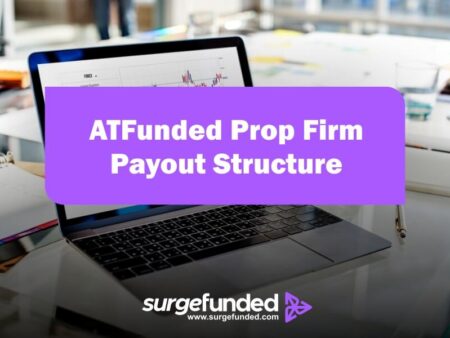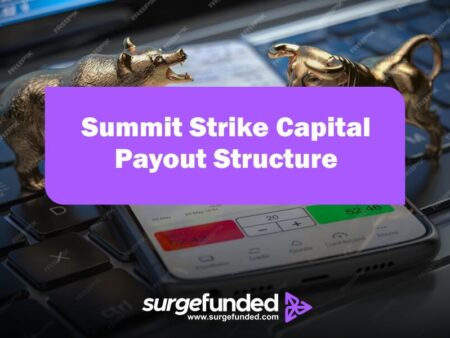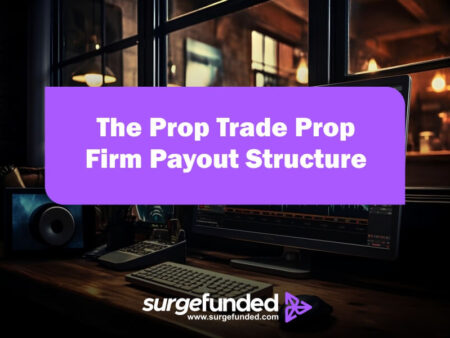Funding traders payout structure, in particular the consistent or regular payout system, is one of the main draws for traders. Funding traders provide an attractive option for traders who want to leverage more funds without taking a big risk with their own assets. These firms offer traders financing in return for a portion of the earnings, creating a win-win situation for both parties. However, in order for traders to optimize their profits and efficiently manage their financial expectations, they must comprehend the details of Funding traders payout schedule, including profit splits and payout dates. In order to give present and potential traders a thorough guide, this article delves into the nuances of funding traders payout schedule, with a particular emphasis on profit splits and payout times.
An Overview of Funding Traders
Funding traders focus on giving experienced traders with insufficient personal funds access to trading capital. These prop firms typically provide an organized trading environment in which traders are assessed according to their tactics and results. Traders that are allowed can access substantial funds, which enables them to take on bigger bets and possibly earn higher returns. Funding Traders provides the required funds and infrastructure in exchange for keeping a share of the trader’s profits, It is a futures prop firm that payout. Because of this arrangement, traders may concentrate on their trading techniques without having to worry about taking financial risks with their own money.
Profit Split: An In-depth Examination
What is the profit split?
Profit split is the splitting of profits between the funding firm and the trader. It is a key component of the funding traders payout structure that establishes the proportion of profits that go to the financing firm and the trader. The profit share differs from firm to firm and is typically stated as a percentage.
A funding firm may offer a 70/30 profit split, for instance, in which the trader keeps 70% of the profits and the funding company keeps 30%. In order to ensure that both the trader and the funding business profit from successful trading performance, this division is intended to align the interests of both parties.
Factors Affecting the Profit Split
A number of variables can affect how traders and funding firms split profits, they include:
- Trader Performance: A bigger profit share may be negotiated by traders who have a track record of success or who possess extraordinary trading abilities. Better split percentages are sometimes given by funding organizations as a way to recognize steady and lucrative performance.
- Account Size: The profit split may vary depending on the amount of funds given. Due to the funding firm’s enhanced revenue potential, larger customers may offer better splits.
- Fee systems: The profit share is affected by the tiers in some funding firms’ fee systems. Additional costs or commissions could be incurred by traders and have an impact on their net earnings.
- Expertise and Bargaining: Skilled traders who contribute extra value or distinctive trading tactics may bargain for better conditions. The firm’s policies and flexibility may also have an impact on one’s ability to negotiate.
Typical Profit Split Model Examples
Different profit sharing schemes are offered by different funding prop firms. Here are a few typical instances:
- 50/50 Split: This is a simple concept in which the funding business and the trader split the profits equally. Although this approach is simple, top-performing traders might not find it to be the most profitable.
- A more advantageous split for traders is the 70/30 split, in which the funding business receives 30% and they keep 70% of the profits. Strong performers in the trading world typically find this model appealing.
- A technique known as the 80/20 Split gives traders 80% of the earnings, which is indicative of strong success or substantial capital use. Although less popular, elite traders or those with a track record of success may be provided this strategy.
Payout Times: Understanding The Timing Of Payments
1. How do payout times work?
Payout times is the frequency and timing of profit payouts to traders. For traders to efficiently manage their cash flow and financial planning, they must comprehend payout times e.g. funding traders payout structure. The distribution schedules of various funding providers vary, and this can have a big effect on a trader’s financial status.
2. Typical Payout Schedule:
Typically, funding traders payout schedule provide a variety of payout plans, such as:
- Monthly Payouts: Every month, traders get paid a portion of their profits. This schedule is typical and pays consistently, which is advantageous for personal financial management and budgeting.
- Quarterly Payouts: A few prop firms choose to distribute their profits every three months in the form of quarterly payouts. For traders who would rather accumulate larger amounts of money before withdrawing, this may be useful.
- Bi-weekly Payouts: Occurring every two weeks, bi-weekly payouts are less frequent but growing in popularity. Traders who want faster returns may find this plan interesting as it allows them to access profits more frequently.
- On-Demand payments: A few companies provide traders with the convenience of on-demand payments, which let them ask for withdrawals whenever they’d like. Maximum control over profit access is offered by this option, although there can be additional terms and limitations.
Methods of Payment
Payout methods offered by Funding traders payout schedule:
- Cryptocurrencies and Direct Bank Transfers: Traders typically have access to a number of different payment options, including both of these. Because of this flexibility, traders can choose how best to get their winnings.
- Withdrawal Requests: Traders may file a withdrawal request upon the achievement of the minimum profit criterion. After that, the company will handle this request, usually in a few working days.
Variables Impacting Payout Times
Funding traders payout schedule and plan can be affected by a number of factors:
- Firm Policies: The frequency and timing of payouts are governed by the policies of each funding business. These rules, which might differ greatly between organizations, are frequently specified in the trader’s agreement.
- Account Performance: Depending on account performance, some firms may modify payout schedules. For instance, if a trader’s account shows a lot of volatility or losses, the business may decide to hold off on paying out until things settle down.
- Withdrawal Fees: A few prop firms charge fees or charges for withdrawals, which can affect when and how much is paid out. Traders must be informed of any related expenses that can have an impact on their net income. Payout timelines may also be impacted by the effectiveness of the company’s administrative procedures. Time lags in financial transactions or processing could affect how soon traders get paid.
Benefits of Knowing Payout Times and Profit Splits
1. Well-informed Budgeting
A trader’s ability to better manage their funds depends on their grasp of the payout schedule and profit split. Budgeting and controlling personal spending are made easier when one knows their anticipated portion of profits and when one will receive them.
2. Improved Talk
Traders can bargain with funding companies for better terms if they are knowledgeable about industry norms regarding payout schedules and profit splits. With this knowledge, traders are better equipped to look for more advantageous agreements that fit their needs and performance.
3. Trading Strategies that are Optimized
Traders can maximize their trading methods by knowing the financial ramifications of payout times and profit splits. Based on their projected profits and payout schedules, traders can make well-informed judgments about risk management, position sizing, and trading frequency.
4. Steer clear of misunderstandings
Having a thorough understanding of payout arrangements helps prevent miscommunications or conflicts with funding companies. If traders completely comprehend the conditions of their agreement, they will be less likely to encounter unpleasant shocks or conflicts related to their earnings.
Factors Affecting Payout Times and Profit Splits
The profit split and payout percentages for traders can be influenced by a number of factors:
- Account amount: The profit split may vary depending on the amount of the trader’s funded account. Bigger accounts could have stronger profit-sharing conditions because firms want to hire traders with substantial capital management experience.
- Trading Plan and Risk Control: The trader’s earnings may also be impacted by how well they manage risk. Traders that exhibit steady profitability and prudent risk management techniques are frequently rewarded by firms.
- Trading Volume: A trader’s earnings may rise as a result of higher trading volumes, which may also result in higher profits. For traders who consistently engage in a lot of trading, some firms might provide incentives.
Summarily,
One important component of the proprietary trading concept is the payout system for financed traders. Traders can choose the companies they want to collaborate with by being aware of the subtleties around profit splits, payout schedules, and the elements that impact profits. The possibility of large payouts is still a big lure for ambitious traders who want to use their skills without risking their own money, even as the trading environment changes. In the cutthroat world of prop trading, traders can optimize their earning potential by concentrating on consistent performance, prudent risk management, and comprehension of the terms of their agreements.
Frequently Asked Questions
1. How do financed traders often split their profits?
- Funded traders often receive a profit split of 50/50 to 90/10, with many firms giving splits closer to 80/20. Certain firms offer possibilities for additional fees or larger splits dependent on performance.
2. How frequently may I ask for payment?
- The majority of prop firms permit traders to seek dividends every week or every two weeks, as long as they reach the minimum profit threshold—typically set at roughly $50.
3. What occurs if I fail to make the desired profit?
- A trader might not be paid out if they fail to make the profit target. Traders are free to take their time in order to achieve profitability, as these targets are typically not subject to time constraints.
4. Are the financed trading programs subject to any fees?
- Many businesses require a one-time evaluation fee, which is frequently refunded if the trade challenge is successfully completed. It’s important to read the terms before joining as some companies may charge monthly subscription fees or other expenses.
5. Do you allow me to trade any kind of securities?
- The prop business determines what kinds of instruments are accessible for trading. Although a lot of organizations specialize in Forex trading, some might also let traders trade stocks, indices, and commodities as their accounts grow.


















